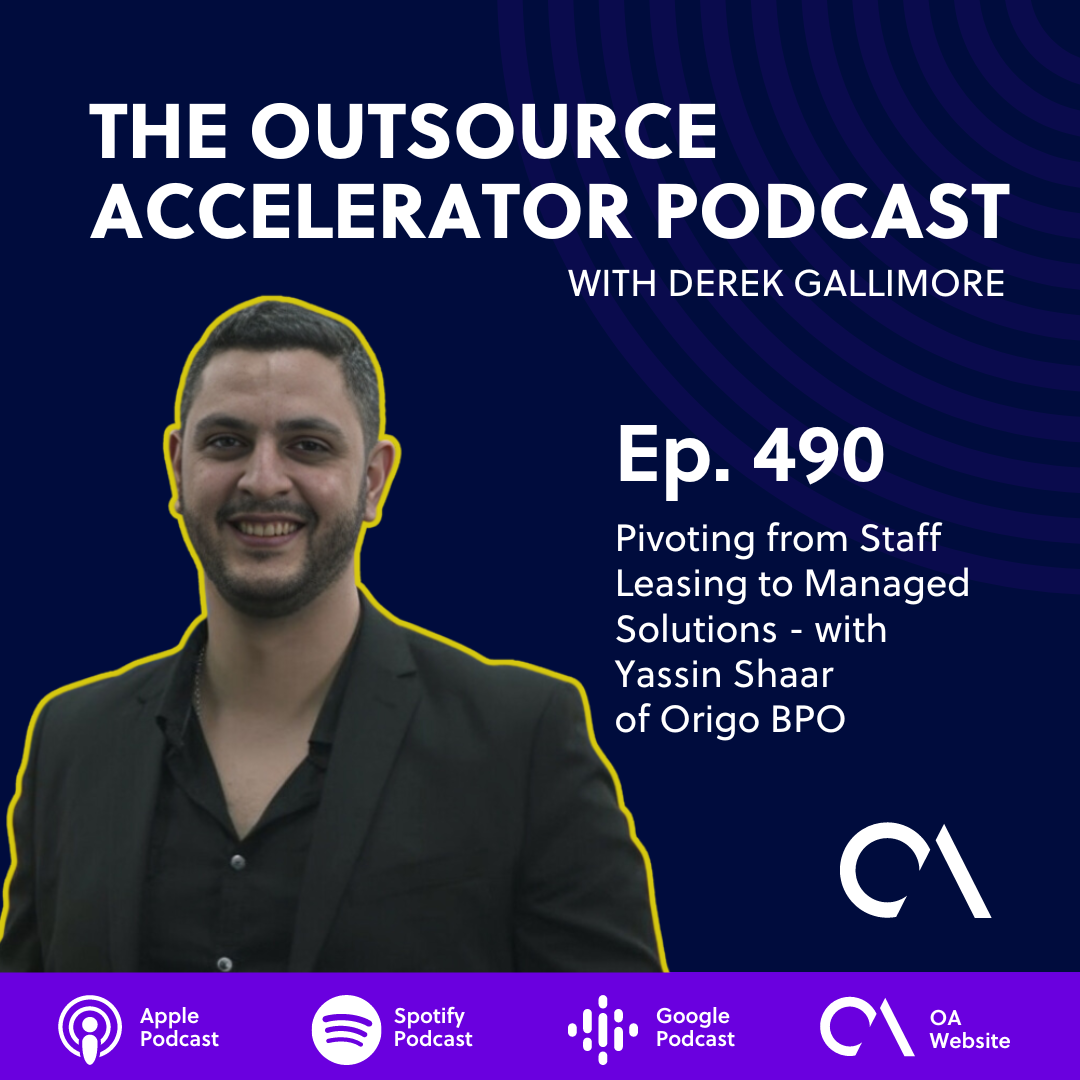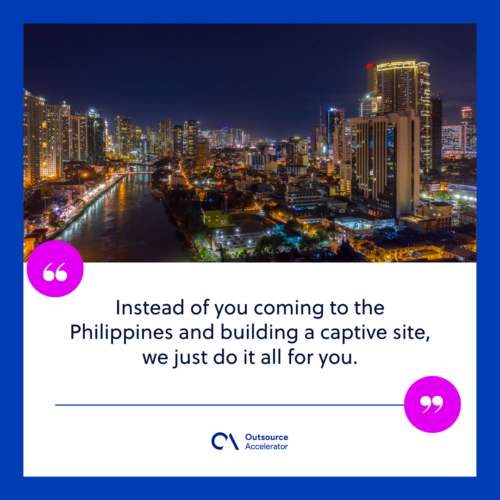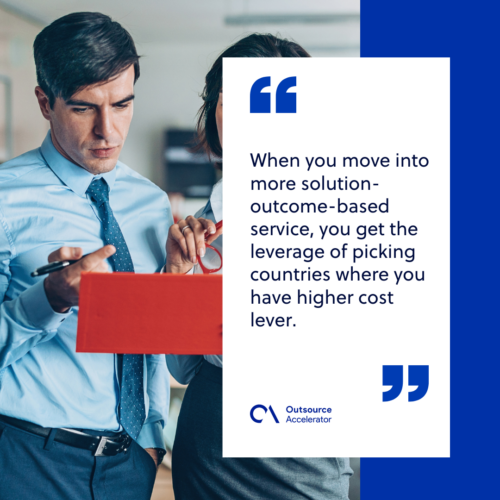Pivoting from Staff Leasing to Managed Solutions – with Yassin Shaar of Origo BPO

In this week’s episode of the Outsource Accelerator Podcast, Derek welcomes back Yassin Shaar, who has recently become the CEO of Origo BPO.
Origo BPO specializes in delivering tailored managed solutions for mid-market field services companies.
Yassin discussed how the global pandemic has transformed the outsourcing industry. He also elaborated on Origo BPO’s strategic shift from offering seat leasing to adopting a managed solutions model that guarantees results.
Origo BPO: Navigating rapid changes amid the pandemic
Origo BPO initially experienced significant growth during the pandemic. “We doubled in size, in fact, in 2022 compared to 2021,” Yassin shares.
However, they soon faced increased competition and commoditization in the outsourcing sector, leading to client churn and financial challenges.
According to the CEO, with first-time clients venturing into outsourcing, “There is a lot of uncertainty. How do I manage a team, and how do I hire the people? How do I make sure that they’re not here today, gone tomorrow?”
But after the first three to six months, “It’s like, why should you keep paying [me] that management fee beyond the initial hiring?” Then they start to shop around.
The firm found it difficult to maintain a competitive edge as clients began questioning the value beyond the initial hiring phase.
The traditional BPO model, which primarily involved managing payroll and office spaces, was becoming obsolete as more businesses opted for direct hiring through freelance platforms.
He explains that “there’s no governance agency or treaties that govern the relationship between an independent contractor and a Western-based business.”
In addition to not having to pay the management fees, clients aren’t required to settle government-mandated contributions (e.g., SSS and PAG-IBIG) for their offshored staff.

Shifting from staff leasing to managed solutions
During the podcast, Derek mentioned the trend of decreasing prices in payroll management and EOR services, which is leading to low profit margins.
Yassin cited the need to avoid competing solely on price and instead focus on adding value. He draws inspiration from successful BPO models like Sutherland and Accenture.
“What are they doing differently than what we’re doing? Then you realize they’re not in the recruiting game. They’re in the outcome business, right?”
These renowned BPOs focus on delivering performances and outcomes rather than just cheaper labor.
The CEO ruminated on the need to pivot to a managed solutions approach with more value-added: “And this is where I think you have to understand your market and what your market is looking for.”
Origo BPO looked at historically profitable mid-market and field service clients. “We’re finding the opportunities right in the middle market. In the 10 million to the 1 billion turnover, that will play a significant role in any economy around the world.
About one-third of the private sector is made up of middle-market companies. Those are your next wave of enterprise companies,” he says.
These companies are less competitive than the enterprise level and more lucrative than small businesses.
Origo BPO’s managed solutions aimed at the field services sector
Origo BPO “specialize[s] in working with private equity-backed field service companies who are doing mergers and acquisitions, who are acquiring six, eight businesses every year, ten businesses every year.”
As Yassin described it, the firm “designs, builds, and scales an offshore shared service center for you. Instead of you coming to the Philippines and building a captive site, we just do it all for you.”
These companies often look for ways to integrate various customer service departments and streamline operations, which the Origo BPO team helps to manage.
The transition in Origo BPO’s business model called for significant changes in the company’s daily operations. The management has implemented team leaders and centers on documented processes, KPIs, and quality standards.What the future holds for Origo BPO
The pivot has so far been successful, with Origo BPO’s significant growth and plans to increase investment efforts.
While its core market is field service, Yassin and his team are looking to expand into route-based businesses, logistics, delivery, OEMs, manufacturers, and service companies.
For the CEO, “We don’t need thousands of customers. Our goal, God willing, by 2030 is to get 30,000 FTEs. We don’t need 30,000 clients, each client with one FTE…
We need 30 clients, each with 1,000 FTEs. So that’s the mindset. You don’t need a lot of companies or a lot of clients to reach a billion-dollar turnover.”
Origo BPO also notes the importance of the connection between clients and teams. With its current business model, the country of fulfillment becomes less important and more about the outcomes.
Yassin plans to use their Philippines service delivery center more on voice-based programs and customer-facing programs, and India for everything back office and technology.
He concludes, “When you move into more solution-outcome-based service, you get the leverage of picking countries where you have more higher cost lever.”
To learn more about Origo BPO and how its featured services can support your thriving business, you may visit its website at https://origobpo.com/








 Independent
Independent




